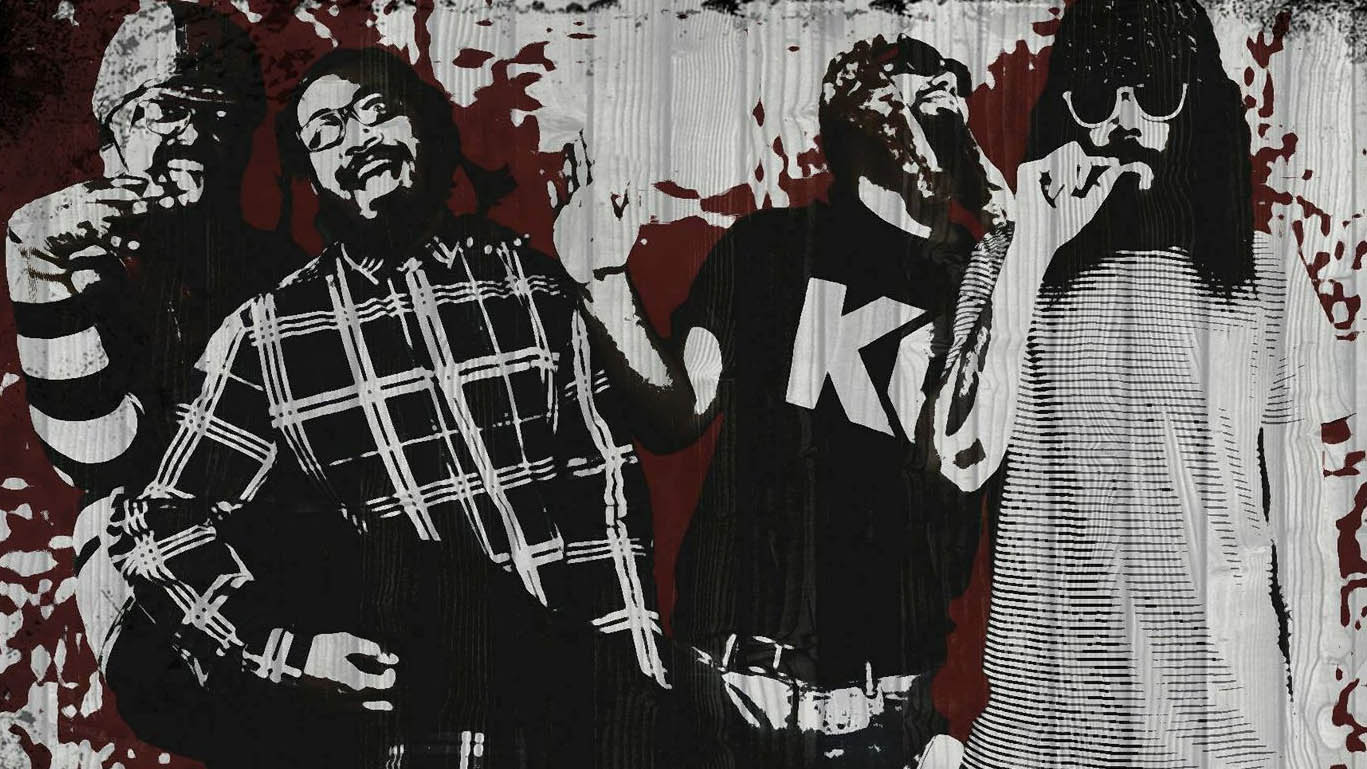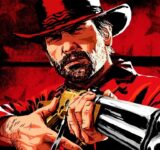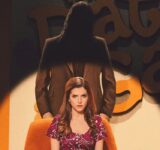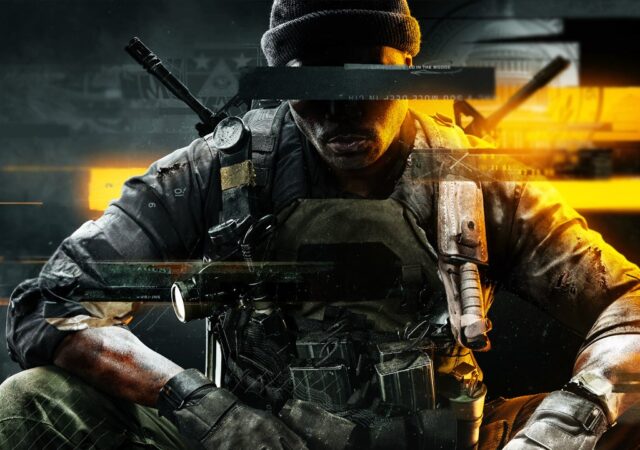It both pays and sucks to be a band with a buzz.
For bands like this, on one hand there’s the chance to turn all the attention into legitimate devotion, but on the other there’s the great risk of faltering in the face of hype and fading away into obscurity. It’s a tough line to walk, one that can make or break the act. For every hype band that has ever made it, there’s at least a gazillion other bands whose names we’ll never get to know.
In a way, it’s probably unfair to call a band like Owned a buzz-band. They’ve been going at it for about a decade, having released their debut album, “One”, back in 2014. The band also boasts a string of mildly successful singles and a decent following of devoted underground rock lovers. But in the drying landscape of Bangladeshi band music, any band that is bubbling under the surface of the mainstream can be put under the buzz-band category, regardless of their status in the underground.
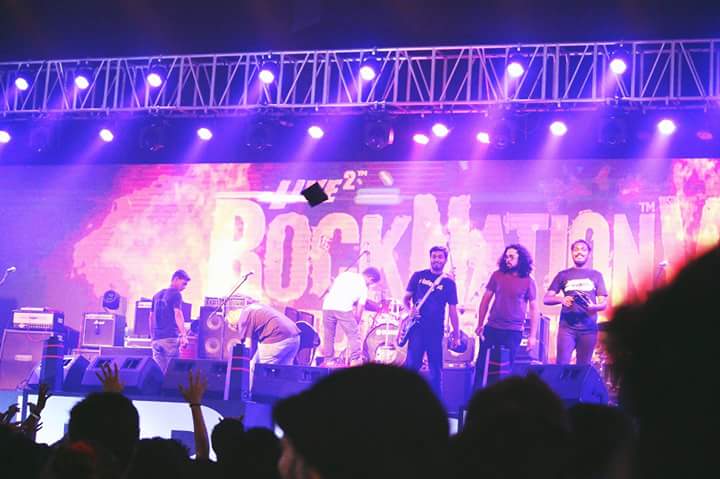
When talks of the band’s sophomore effort, “Two”, started appearing online, conversation immediately began on whether it would be able to outdo the much acclaimed “One”. While it’s true that the album wasn’t exactly a mainstream smash-hit, it was a critical success. For a band that had for years showed promise to become a major player in the local rock scene, ” One” was a solid unveiling. It helped elevate the band to the ranks of Rocknation gigs and regular upper-card and headlining slots in the underground and made it visible enough to those who were willing to look.
The band’s debut album, One, wasn’t exactly a mainstream smash-hit. But it was a critical success.
The first single released by the band, Gorbho, disappointed me in this regard. Yes, it has a memorable riff; yes, the tones and the production is off the charts heavy; yes, the melody in amazingly catchy, but it wasn’t exactly anything radically different from what Owned had always been doing. If anything, the song felt like a kind of back-to-basics effort that felt sure to letdown anyone expecting something new.
And so I attended the launching concert of “Two” a little, erm, neutralized. The band had always meant so much to me that I would rather cut down on the expectation than let it fail me. The unease was palpable. After opening band The Manager had got off the stage (they were great), it was announced that two videos from the album were to be projected on the projection screen on stage.
The first one turned out to be Gorbho and everyone seemed to love it. I was only a little swayed by its live potential.
But up next was Amorsho and, well, that was when I decided I would go all in on this album. It was everything I had expected, and more. The music video – made by good friend and former bandmate Shahariar Ahmed from Cybertron Studios – was near perfect in complementing a song that’s the best post-genre song I’ve heard out of Bangladesh, ever.
Amorsho is everything one expects from a band like Owned, and more.
Is it a rock song? Yes. Is it an Owned song? Surely. Is it a disco song with a dark riff and a fiercely driving beat that has both a brooding and a liberating feel to it? Hell yeah. At the end of the show, I hugged Samee bhai – the drummer and de facto band leader – with tears in my eyes, a definitive “you have outdone everything, bhai” moment.
I still didn’t know what the rest of the album would sound like, though. It took me a while to unhook myself from Amorsho and put the other songs for a spin.
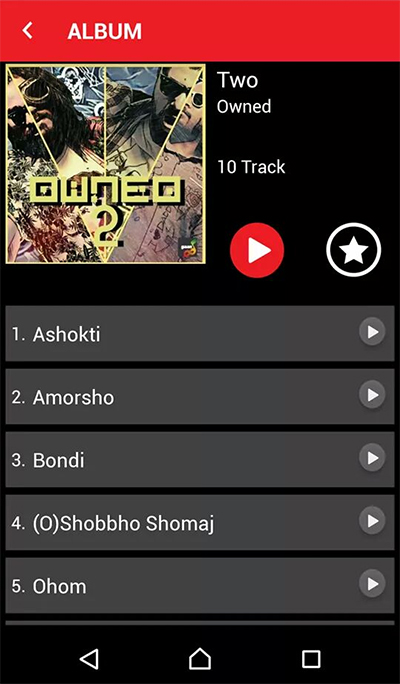
I eventually did and got blown away by the opening riff on Ashokti immediately. It’s a straight out balls to the wall, Foo-Fighters-on-Steroids riff that kicks off the album with a furious urgency and sets the tone for the rest of it. The blueprint of bluesy grooves, monster guitar tones, hangman beats, and the nonchalant vocal melodies of A.K Ratul characterizes the stylistic setting of “Two”, and its all found in the opening few minutes of Ashokti. From there it gradually moves into an aching feel that serves as a surprising reconciliation of one of rock’s biggest divides.
On one side the band pulls out the stoicism of grunge angst, while on the other it evokes hard rock’s nostalgic drive through the sunset strip, and it all feels like taking a journey through rock history. It never deviates from the Owned formula though, with the distinct tones on the instruments making the band feel like the modern chapter in this folklore. Oh, and there’s a noise sequence to end the song. Just all kinds of genius.
Ashokti kicks off the album with a furious urgency and sets the tone for the rest of it.
Amorsho is a bonafide rock anthem that deserves to be played in front of thousands, yet it somehow also speaks to the audience in private. The first time I heard it on my headphones, I could totally see myself putting up one of those kamla disco balls and dancing to it in guilty pleasure overload. The song introduces a lot poppy elements into the album, but stays an out and out innovative piece throughout.
From the eerie dark intro riff to the climactically 80’s chorus, the song is a landmark for a new sound, yet it still sounds like its written by the same people who wrote Jekyll and Hyde and Bibhranto. It’s a gamechanger that puts everyone in the industry on notice: Owned is here to push all the boundaries that you hesitated to break through.
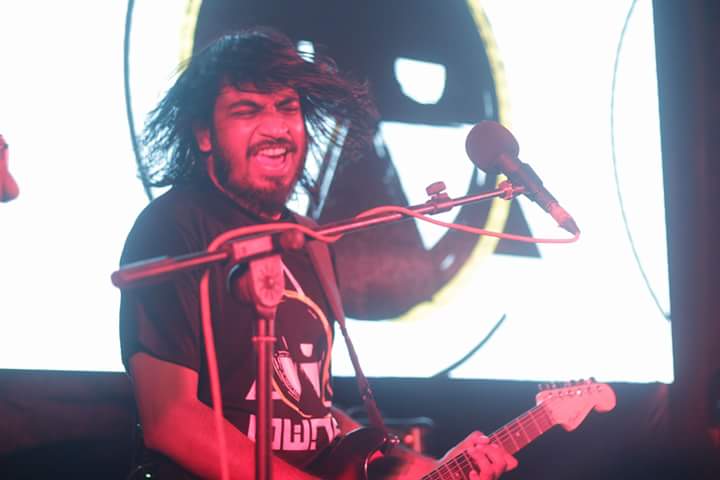
The band drops Bondi with another remarkably catchy riff, and it’s probably the best of the lot so far. The bluesy riff cuts right into a trademark Owned chorus that’s singable enough to merit another lyric video for the song.
Bondi is a guitar number through and through.
After the second chorus it enters first a headbanging spiral of drooping riffs and then a remarkably RATM-esque section layered with some deadly harmonies. But the spotlight gets stolen by the drummer near the end though. Amidst an assault of guitars, the song ends with what feels like A.K Samee beating up everything around him.
The first minute of Oshobbho Shomaj marks the first time the album loses its steam, or so it seems at first. The song quickly blossoms into another great tune when the verse moves into the very playful pre chorus and then reaches higher with the soaring chorus. By the time the song ends we’ve already been through a circus music section, a shouted verse, and a pop-punk chorus with anthemic qualities.
The next song, Ohom, was digitally released back in October 2014. Although this newer version is changed somewhat – it teatures a more subdued appearance of the electronic parts -, the essentials of the song remain the same. This history can be noticed in its more visceral, metal-like vibe, owing mostly to the sharper, crunchier guitar tone. But it’s not a bad thing; in fact, quite the opposite. The variations in the song serves as a timely respite from the relentless thicc riffs that dominate first 4 songs, keeping both sounds fresh in the process.
As for the song itself, it’s another standout banger that’s already a part of the band’s regular setlist (one can only imagine how it could catch on even more now).
Ohom harks back to the point in “One” where it genuinely felt like the band would be moving toward a more experimental, electronic direction.
The outro’s keyboard modulations recall memories for that sound that owes much to former keyboardist Samiul Haque.
Replayed with a renewed trust in the band, I acknowledged Gorbho as ANOTHER great song with ANOTHER great riff (it’s abnormal how many memorable riffs this album already has, and this is just the sixth song)! Although the riff at the beginning will be beloved by most, the song is far more than a one trick pony and is more like a compilation of great riffs. It’s a song where every section clicks and plays off each other to create what’s sure to be a regular demand at live shows.
Notun feels like a continuation of the same emotions Ashokti fiddled with.
The intro riffs are almost similar in style. While Ashokti goes into a tirade, Notun muses over the romance of “almost there” and points to a new day. It’s easily the melancholic thumper of the album.
The pop-punk sad-hope of the chorus is dragged into a therapeutic guitar lick right after, compounding on the overall feel of the song. The drumwork, though simple, has enough variations to cover for the steady guitars throughout the song. I know that vocalist Ratul is probably not a fan of Billy Corgan, but Notun’s structure reminds me of The Smashing Pumpkins a lot, and they are one of my favorite bands ever.
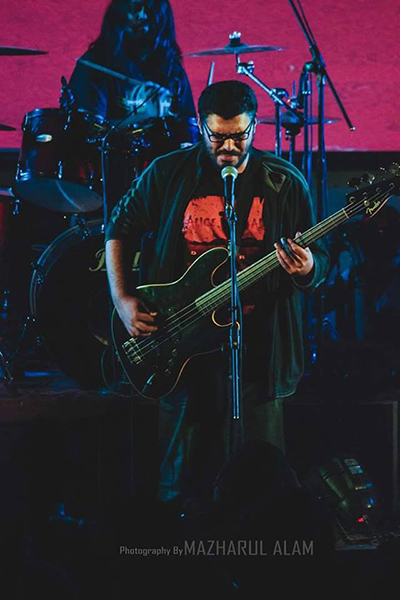
It’s now the 8th song, but the band refuses to relent on the delivery. As a writer this is quite frustrating for me – I can sense that everything I’m writing is basically just “this is a great song guys”. But then this song, Charkona Shotto, is indeed another great song.
Opening up with a bare guitar, the song unexpectedly blends into a salvo of groovy riffage and drumming. The opening verse that follows is characteristically Owned, but with a little twist in the reggaelike rhythm that keeps things fresh. Its followed up with, of all things, one of the best placed punk chants ever heard in a Bangla song. Although the chorus underwhelms somewhat, the rest of the song is full of surprising and unconventional moments deserving of many an encore live. The riff that comes before the second chorus and the one to close out the song are both candidates for being the most chaotic in the record.
The penultimate song, Bibhranto, sees the band go back and forth in frustration, anguish, and self-reflection.
While the intro and verse sound like an intense inner dialogue of a broken figure, the chorus, with its irresistible harmonies, confesses this brokenness. If this drags the listener into the conversation, the outro tar-jerkingly liberates her. It’s the kind of release that may not immediately be picked up by the passing fan, but for the shut-eye concert-goer, this song can be the go-home catharsis.
Dur-Onishto blasts off with a riff that would make “In Your Honor” era Dave Grohl salivate with the realization of just how many ways his sound could go. The song features a mesmerizing solo, with the backing instruments just enough “driving” to carry the motion of the song, but not too much to disrupt it as it enters the unbelievably emotional last minutes of the journey “Two” has been. The riff that kicks in at 2:03 carries such a killer emo sound that it had my teenage emo phase almost bursting out of a body of the much older man.
But then that’s exactly what Owned does with this album too. It’s heavy log of mature instrumentation may seem almost scientifically designed, but the emotions and expressions of the band are what carries this monumental rock record.
Besides the songwriting and the music played, perhaps what deserves most recognition for this is the production that unifies all the disparate noises into one coherent body of heartfelt tunes. The way the more intense parts of the songs blend in with the fragility of the sound is a testament to the producer’s mastery of it.
On the other hand, how the band manages to commit so much to the integrity of its sound on the face of such a shift in the writing style is a clear sign of a group at the peak of its musicality.
Guitarists Fasih and Pritom may be the true stars, but the variations in the songwriting manages to keep all the songs afloat despite fiddling from only a select few scales.
When it’s not the riffs, it’s the drums that change to keep it fresh. The bass is never overplayed, but more “brewing” as it lays the groundwork for the emotions to work on. All the while the production cuts, opens, and layers the most amazing peaks with the drops so well that it seems more like a journey from one peak to another rather than an anxious wait from one to the next.
However, the album is not without its flaws as well. The prime responsibility for this falls on the weak lyric work throughout all the songs. With words such as “nije”, “phire” and the like heavily repeated, the emotional connection with the songs perhaps falter on the language side as the lyrics underwhelm in complementing the superb music it has to catch up to.
The vocals are also at fault for evoking a little drudgery at times. The melody – which has by now become an A.K Ratul signature – sometimes feels like a droning of the same tune that can cause the listener to suddenly zone out of the songs. But then it happened to me only a handful of times throughout the many times I spun the entire album and so is perhaps not as big a worry now as it can be when the time comes for the next phase in the band’s legacy.

At the moment though, this legacy shows no signs of stopping. When compared to the current standards of bands releasing 2-3, or at best 4-5 memorable songs per album, “Two” truly looks like one juggernaut. No, really, when was the last time you heard an album and felt that about 8 out of 10 songs were just really, really good songs? Yet somehow, Owned seems to deliver this level of quality with ease. There’s no mid album slump, no tailend towel throw. Everything about this album just feels right; no drum fill out of place, no solo forced. The passion, motivation, creativity, and prudence the band shows to each song remains untainted throughout the whole effort.
The level of sheer commitment that can be felt in all the songs is perhaps the key to how to make an album with the potential to disrupt everything on its wake.
Just like “One” elevated the band to the ranks of Rocknation, here’s to hoping “Two” takes it to the clotheslines of rock’s elites. But no worries even if it doesn’t though, we still have a jolly good album in our hands.
Let’s just be glad that Owned has comfortably moved past the “buzz-band” phase into that of underappreciated icons.

